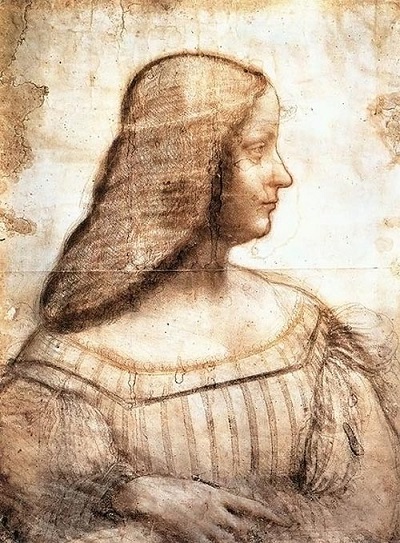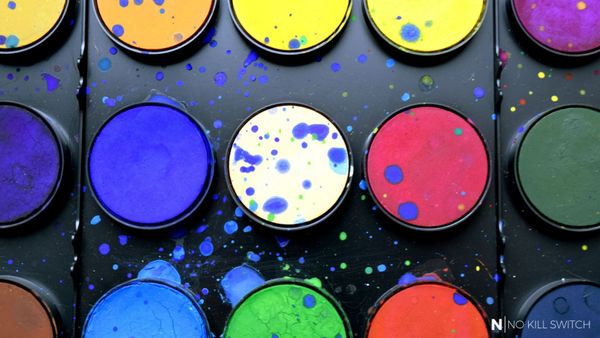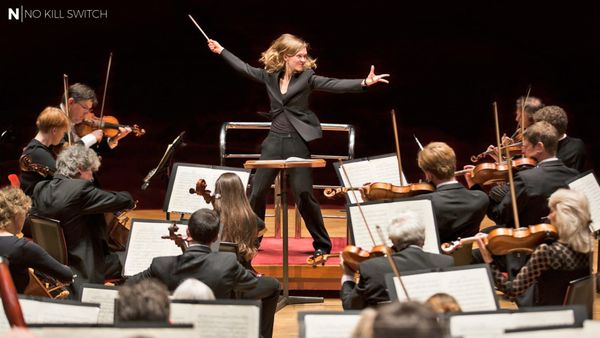TL;DR I've asked myself a question - what has made Leonardo da Vinci so exquisite that his fame lasts for half a millenium already - answer (based on biography & known facts) doesn't differ much from what depicts best software (& not only) engineers of modern times. Years pass, even whole centuries do, but some of universal personal traits remain as the ones who separate accomplished, successful craftsmen from these who never stood out from the background.
I hate reading biographies, but I do make exceptions for the ones of people I find truly unique & fascinating. I do not read them to blindly copy behaviors or even mindsets (I'm not that naive), but just out of sheer curiosity - interesting people tend to live the interesting lives. My most recent "trophy" of that kind is Walter Isaacson's biography of ... Leonardo da Vinci - a person I find utterly fascinating - someone who has been ahead of his time on so many fields it's almost beyond belief.
At the first glance it looks quite ridiculous, but the biography of a person who died ~500 years ago has been covered on ... over 600 pages. Keeping in mind the level of literacy (during early Rennaisance), historical turmoils, then low awareness of the importance of Leonardo's work that was not paintings - it's unbelievable that author had that much material, but fortunately it's fact. This book presents not only da Vinci's tremendous works & achievemnts, but also (directly and indirectly) answer the most (IMHO) interesting question:
What made this man so successful, that he remains an archetype of genius & a role model for architects, painters, inventors (& many others) until this very day?
It doesn't appear to be the raw talent, though no-one sane would deny he was truly gifted. But there are some consistent patterns that keep appearing in all the written sources that have survived from his era:
Insatiable Curiosity
Leonardo was making detailed notes of almost everything he did. He sucked in two things - having complete "inventory" of his works :) & annotating notes with dates. So, do you know how did the art historians manage to put his works in chronological order? Thanks to muscles. It's not a typo. They've found out that during his painter's career, Leonardo was learning more & more about the structure of human's body muscular system - at the early stages he was not fully aware of some minor (I think it was one of the neck ones) muscles (so they haven't appeared in his paintings), but he learned about them later.
Yes, you've got it right - this guy wasn't just "snapshotting" with paint what he was seeing with his very eyes, he put a humongous effort (including series of dead body dissections - of both people & animals) to understand the natural constraints & mechanical invariants of how our body behaves - to make it appear more vivid, more lively, more like real person - flesh & blood.
Isn't it a healthy engineering instinct? To be curious about how does stuff work under the hood? Do no rely on visible effect, but find out what makes this effect happen?
Controlled Experimentations
Leonardo's life was all about experimentation. I don't mean just his studies on flying machines, submarines, urban architecture, fortifications or siege machinery - even his painting was endless tinkering. Take famous "Last Supper" - da Vinci had to play with new types of paint (as it's a mural), perspective (due to specifics of refectary's shape) & painting techniques as well (unique way of highlighting the characters out of the flat background).
Not all of experiments succeeded, actually many of them failed miserably ("Supper" had to be renovated for the first time just after 10 years). Plenty of Leonardo's works had several unfinished versions, where he had tried different setups, techniques, even compositions. But he always turned failures into learnings - refined his artistic techniques, adjusted theories (like the one about what makes birds fly or about how heart works - when he has actually "opened" a living pig) - his journeys through experimentations can be re-traced thanks to detailed notes (over 13_000 pages of notes & drawings!) I've already mentioned.
Isn't it a healthy engineering instinct? Continuous loop of iterative improvement, based on validated learning?
Intrinsically-fuelled Ambition
Leonardo has had the appreciation of people of his era - he was recognized by the rich & mighty, both patrons of art & "competition". It was possible for him to turn his skills & reputation into pure profit - he has always had too many willing for his services. But he remained picky & rejected easy money (and "cheap" fame, e.g. due to repetitive, sacral "contributions") - most likely the most famous (& the best documented) case is the one of Isabella d'Este & her portrait.

Isn't it a healthy engineering instinct? Always learning, looking for intrinsic motivations, always daring for bigger / better / more.
Open Mind (& Wide Comfort Zone)
Da Vinci was an exemplification of "E-shaped person" - he didn't restrict himself to one, narrow field of specialty, but instead his focus was divided across few domains, while he was looking for natural synergies between them. There are tons of examples (about his multidisciplinary work) to bring up: mechanics + anatomy (Vitruvian Man), optics + painting (concentrating the solar power), biology + aerodynamics (gyrocopter, wing structure), etc.
Isn't it a healthy engineering instinct? Go "beyond the book", understand the broader context of problems you're facing, apply universal "brainpower" instead of dry, narrow slice of knowledge.
Yet Chronically Inconclusive ...
One of his main flaws was (almost) never finishing anything - he got distracted easily (with new challenges, visions or even detached, but promising ideas) & once he had lost his focus, it was nearly impossible to get him back on track. He was failing all the obligations, all the promises ("deadlines") & commitments. Leonardo always lived in a chase after something only himself understood - his appetite for knowledge & discovery was sort-of selfish: he never published his discoveries, he didn't want other to build upon them.
In fact, except of his paintings (~15 survived until today) he's mainly known for his unfinished works - for ideas that were frequently ~200 years ahead of their time, but he has neither concluded them nor made public, so they had to be re-invented from scratch by future generations. Leonardo had the potential (& basis) to change his world (even keeping in mind the contraints he was facing), but he was very poor in Getting Shit Done ;>
Isn't it a very unhealthy engineering instinct? (one each of you should struggle to expel as early as possible) To focus on a thrill of inventing, but losing value out of sight? To leave potential minor acomplishments half-baked in a chase for ephemerical goal that never manifests itself?








